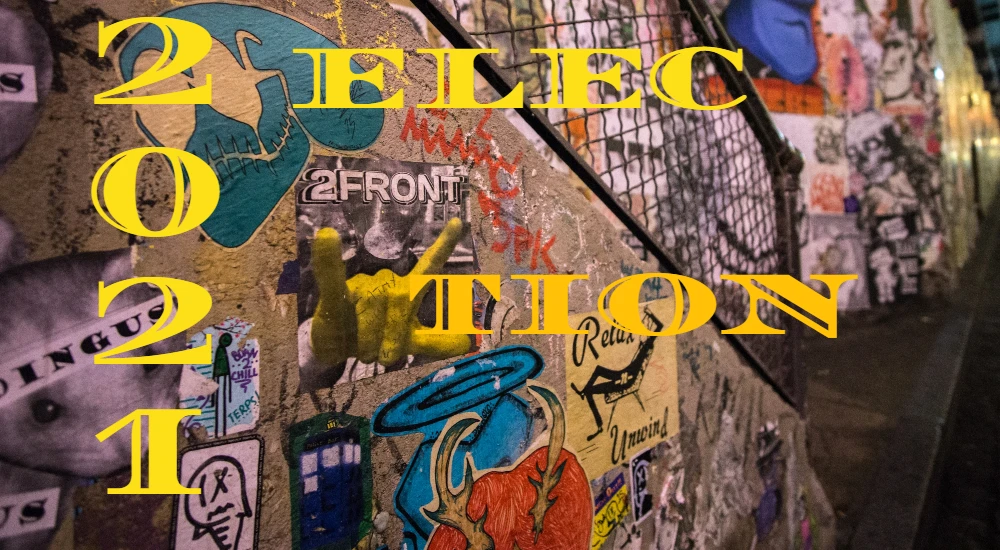
First of all, we need to urge everyone to take any reasonably close result in yesterday’s election with a giant grain of salt. Ballots by the boatload remain outstanding. As one of our favorite sources noted when the results of the August primary shifted dramatically later in the week: “Election Night punditry is just crap.”
But we’ll do some day-after takeaways anyway, in the full knowledge that the late vote might make some of it wrong in the coming days.
Let’s start in a relatively obscure part of the ballot, that generational fight for control of the Port of Seattle where iIt looks like that rebellion is actually happening. Toshiko Hasegawa is barely trailing incumbent Peter Steinbrueck, and Hamdi Mohamed is close behind Stephanie Bowman, who’s seeking her third term on the port commission. If the late vote bows to conventional wisdom and breaks left, both challengers will likely prevail.

Keeping big money out of Seattle politics doesn’t really work. In recent years, the City has installed a system of public financing for campaigns and effectively banned political spending by big corporations such as Amazon, ostensibly in service of limiting the influence of unfettered wealth. This is the first election with both of those changes fully in place, and the result was an election completely awash in cash, mostly from rich individuals involved in commercial real estate. Amazon’s money may have been on the sidelines, but Amazon’s landlords’ money spends just the same.
The rich-people slate — Bruce Harrell for mayor, Sara Nelson for city council, Ann Davison for city attorney — looks to go 3-0. Wealth-fueled PACs supporting those candidates spent about $2 million. Wealthy donors also look to carry King County Executive Dow Constantine to a fourth term in that office. Challenger Joe Nguyen is currently taking what must be an irksome 42 percent of the vote out of Constantine’s left flank, but Nguyen couldn’t overcome a campaign nearing $2 million, a 9-1 advantage,
Democracy vouchers don’t win elections. Several citywide campaigns this year focused heavily on harvesting the four $25 coupons issued to every registered voter in Seattle. We wrote about the blatant voucher-harvesting effort of Andrew Grant Houston’s faux-campaign for mayor back in the summer. Two other campaigns — Nicole Thomas-Kennedy’s bid for city attorney and Nikkita Oliver’s run for city council — focused heavily on voucher-harvesting and field campaigning. Both were soundly beaten by more conventional campaigns centered on direct mail and advertising. In the end, more than $3.3 million in vouchers were redeemed; last night’s results would likely have been similar without the program.
As we noted on Thomas-Kennedy’s questionable strategy: If you pay rent or own property in Seattle, you paid for that voucher program, and you can probably see a better use for the money from wherever you’re sitting right now.
Negative campaigning works — if you do it right. The calculated, research-driven independent campaign against Thomas-Kennedy successfully exploited her ill-advised tweets from last year and helped elect a Republican in Seattle for the first time in decades. Meanwhile, Lorena González’s ham-handed attempt to brand Harrell as an enabler of sexual abuse backfired badly and likely contributed to her lopsided loss.
It was a bad night for labor — at least part of labor. The independent-expenditure committee backing González got nearly all its money from a handful of unions that represent low-wage workers in hotels, restaurants, grocery stores, and long-term care facilities. The aforementioned ban on corporate money was engineered by González to give these PACs an advantage. The biggest chunk of that came from UNITE HERE, a hospitality-worker union with very few members here and which spent heavily two years ago to get Andrew Lewis elected to the Seattle City Council. The same unions also funded a PAC backing Oliver’s bid for the council. Even incumbent council member Teresa Mosqueda, a labor champion considered an overwhelming favorite, had less than 53 percent of the vote after Tuesday’s count. The unions’ bets on a more labor-friendly City Hall look to come up empty.
As noted before, labor was split in this campaign. Some unions, most notably the Seattle Firefighters and construction workers, backed Harrell.
It was an off night for The Stranger. The left-leaning news site typically punches well above its weight in Seattle-area elections, especially crowded primary ballots, but this wasn’t their year. They backed González, Oliver, Thomas-Kennedy, and Nguyen. In the win column, they endorsed Mosqueda, Sara Perry’s probably-successful bid to unseat Kathy Lambert from the King County Council, and both of those Port of Seattle Commission challengers we mentioned above.
Discover more from Post Alley
Subscribe to get the latest posts sent to your email.

The middle wins. However, nationally those independent voters will abandon Biden faster than a dog eats a treat. The left appears to ignore the warning signs and has no guardrails to attem; to save them selves from themsselves.